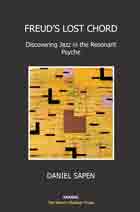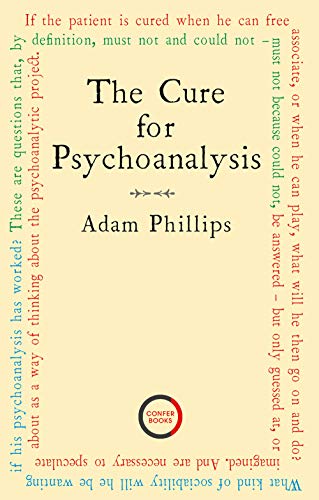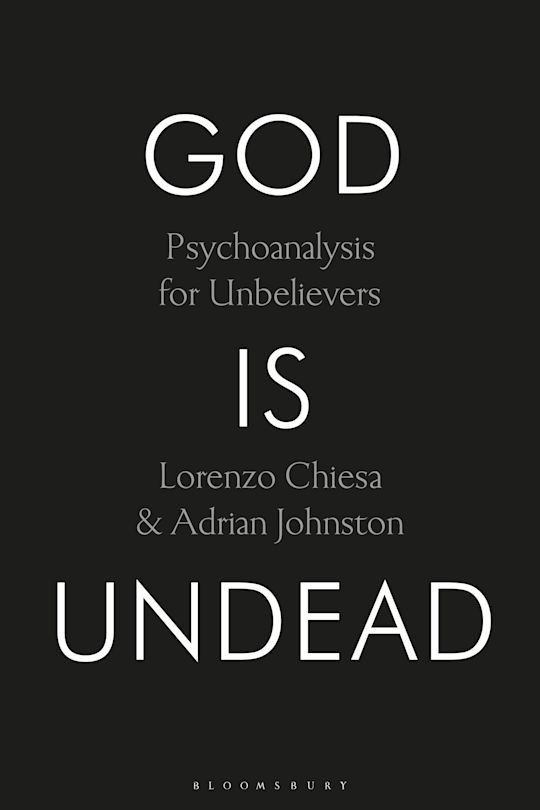Freud's Lost Chord: Discovering Jazz in the Resonant Psyche
Part of The Harris Meltzer Trust series - more in this series

Book Details
- Publisher : Harris Meltzer Trust
- Published : September 2012
- Cover : Paperback
- Pages : 256
- Category :
Culture and Psychoanalysis - Category 2 :
Psychoanalysis - Catalogue No : 31878
- ISBN 13 : 9781780490120
- ISBN 10 : 1780490127
Our Customers Average Rating
Read all reviews (2)





In Freud's Lost Chord, Dan Sapen explores what it means for the development of depth psychology that Freud was perplexed by music, and unlike nearly every other aspect of human life, had little to say about it – a problem shared by most others in the early generations of psychoanalytic thought. Psychoanalyst Charles Rycroft wrote "One cannot help regretting that none of the pioneers of the unconscious thought naturally in auditory terms"; more than this, over 100 years later, not only is music per se rarely looked it in psychodynamic terms, jazz music is almost completely absent from the literature. Dr. Sapen looks in depth at the intricate details of psychodynamic theory and practice, as well as an overview of its development, to address the possibility that a theoretical model that has little to say about such a basic and omni-present aspect of human life must be seriously flawed in its effort to explain what it is to be human, and how the mind functions and what it creates. However, Sapen illustrates how numerous other thinkers (Jung, Winnicott, Bion, Loewald, Rycroft), some seemingly at odds with and others serving as essential developments and re-workings of psychoanalytic principles, have managed to illuminate and integrate those missing principles so basic to music and creativity – to development, dreaming, thinking, and relating among other human beings intimately and in a society. Nearly uniquely in the psychodynamic literature, Sapen looks in depth at the music of Miles Davis and John Coltrane as examples of the living, breathing psychological processes so essential to understanding the meaning and dynamics of being human that Freud could not, for a variety of reasons, conceptualize.
Reviews and Endorsements
‘This is a timely and important book on the relationship of psychoanalysis and music. Its strength derives from Sapen’s command of both fields. Using psychoanalytic theorists such as Bion, Winnicott, Loewald, Meltzer, and Rycroft, Sapen maps a rich concept of the unconscious as creative process. He then applies that concept to jazz, with special attention to the great work of Miles Davis and John Coltrane. Previous psychoanalytic studies of music have focussed on classical music. Sapen makes out a brilliant case for jazz as the musical idiom that offers the richest possibilities for an art capable of exploring the dynamics of the unconscious. The book shimmers with fresh insights, both into psychoanalysis and into music. A seminal work.’
- Walter A. Davis, Professor Emeritus in the Department of English at Ohio State University
‘A wonderful exploration of the interface and intermingling of music and psychoanalysis. Sapen, a therapist-musician, explores the nature of rhythm, resonance, and response, melding a rich panoply of psychoanalytic writings, including Winnicott, Bion, and the relational psychology of analyst-musician Steven Knoblauch, with the music of Coltrane and Miles. Sapen’s sense of beauty and rhythm touches many chords, and brings out what music can do for psychoanalysis, not just what psychoanalysis can say about music.’
- Michael Eigen Training analyst with the National Psychological Association for
Psychoanalysis (USA); Associate Professor of Psychology, New York University
‘I am dazzled by how well Sapen articulates the subtleties of the analytic process and its purposes, and into the nature, technical aspects, and multidimensional dynamics of improvisational music and their relevance to the question of emergent consciousness. Few if any writers in my experience have demonstrated either the insight or quality of prose to deal so lucidly with these matters, let alone simultaneously.’
Lee Underwood - Musician and author; former West Coast USA editor of Downbeat; contributing journalist to Rolling Stone and The Los Angeles Times
About the Author(s)
Daniel Sapen received his PhD in Clinical Psychology from the Derner Institute of Advanced Psychological Studies at Adelphi University, and his Bachelor’s Degree in Philosophy from Vassar College. He currently has a private, integrative psychotherapy practice in Long Island, New York, and has extensive experience in community mental health, schools for emotionally and developmentally disabled children, and nursing homes and rehabilitation centers treating geriatric and physical trauma issues. Musically, Sapen is a multi-instrumentalist (drums, saxophones, piano), composer, and poet-lyricist, and has written reviews and essays on jazz and audio for Earshot and Listener magazines. He is married with a young daughter.
Customer Reviews
Our customers have given this title an average rating of 5 out of 5 from 2 review(s), add your own review for this title.
Rachel Edelson, Professor, U of California, Davis on 28/05/2017 19:48:19




 (5 out of 5)
(5 out of 5)
As a PhD student fascinated by Freud, improvisation, a transdisciplinary and jargon-free approach to many facets of depth psychology, I felt I'd entered intellectual heaven when reading Sapen's brilliant Freud's Lost Chord: Discovering Jazz in the Resonant Psyche. Sapen's intellectual grasp and his compelling, indirect, erudite style is comparable to that of the dazzling Adam Phillips: to read either of them is to encounter a mind that has deeply integrated numerous complex ideas and is presenting them in such a way as to show how these ideas illuminate and reflect off each other.
Particularly impressive is Sapen's re-framing of Freud's psychodynamic views, not iconoclastically, but broadening them within the context of Jazz, with its multiple layers of resonance of meaning, of interplay of voices, within the psyche. And doing so with a style that is perhaps even more poetically thrilling than it is academically erudite. As examples: chapters entitled Resonant Space for Dreaming and Musical Metapsychology; and phrases such as these: "With the structural theory, Freud called attention to the mind not into regions, but rather agencies in tensile, complementary relationships. Seen as mythology, all these agencies are quasi-dieties, standing in for epitomies of chaotic appetite, authority and negotiation," and "this transitive and transcendent nature of symbolization - the passing of conceptions through a figurative membrane into consciousness - also describes the permeating resonance which is music." A style such as this invites the reader to ponder, to reflect, to muse - rather than to struggle or to be impressed.
I've read a great deal of the literature on Freud, and I do know that it is often narrow in its scope, whether in praise or in calumny. Sapen, however, brings the reader to Freud within a multiverse of Bion, Kristeva, Jung, Knoblach, Rycroft, quantum physics, and the god Mercury. He ends his book with an enthralling account of a complex, aging, despairing, lonely and witty woman whom he saw in therapy - describing in musical detail her body language and the range of resonant responses she evoked from him.
I predict that this recent book will prove to be not only a ground-breaker but an important classic work in psychoanalytic literature - in part through offering not only clinicians but writers in the field a new paradigm of approach to human experience, a paradigm that is equally creative and academic.
Rachel Edelson, Professor, U of California, Davis on 25/06/2016 09:18:08




 (5 out of 5)
(5 out of 5)
As a PhD student fascinated by Freud, improvisation, a transdisciplinary and jargon-free approach to many facets of depth psychology, I felt I'd entered intellectual heaven when reading Sapen's brilliant Freud's Lost Chord: Discovering Jazz in the Resonant Psyche. Sapen's intellectual grasp and his compelling, indirect, erudite style is comparable to that of the dazzling Adam Phillips: to read either of them is to encounter a mind that has deeply integrated numerous complex ideas and is presenting them in such a way as to show how these ideas illuminate and reflect off each other.
Particularly impressive is Sapen's re-framing of Freud's psychodynamic views, not iconoclastically, but broadening them within the context of Jazz, with its multiple layers of resonance of meaning, of interplay of voices, within the psyche. And doing so with a style that is perhaps even more poetically thrilling than it is academically erudite. As examples: chapters entitled Resonant Space for Dreaming and Musical Metapsychology; and phrases such as these: "With the structural theory, Freud called attention to the mind not into regions, but rather agencies in tensile, complementary relationships. Seen as mythology, all these agencies are quasi-dieties, standing in for epitomies of chaotic appetite, authority and negotiation," and "this transitive and transcendent nature of symbolization - the passing of conceptions through a figurative membrane into consciousness - also describes the permeating resonance which is music." A style such as this invites the reader to ponder, to reflect, to muse - rather than to struggle or to be impressed.
I've not read a great deal of the literature on Freud, but I do know that it is often narrow in its scope, whether in praise or in calumny. Sapen, however, brings the reader to Freud within a multiverse of Bion, Kristeva, Jung, Knoblach, Rycroft, quantum physics, and the god Mercury. He ends his book with an enthralling account of a complex, aging, despairing, lonely and witty woman whom he saw in therapy – describing in musical detail her body language and the range of resonant responses she evoked from him.
I predict that this recent book will prove to be not only a ground-breaker but an important classic work in psychoanalytic literature - in part through offering not only clinicians but writers in the field a new paradigm of approach to human experience, a paradigm that is equally creative and academic.







